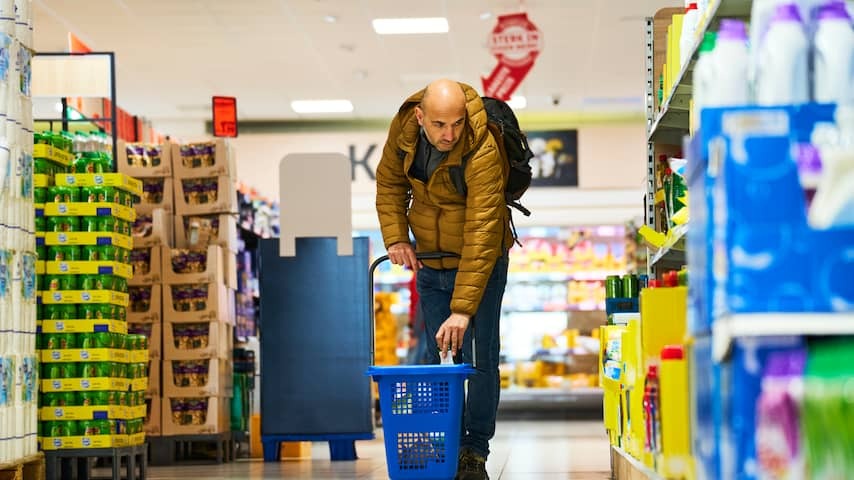
The Food Industry is Working on Crisis Plans to Ensure That Basic Products Always Remain Avisable in Times of Crisis. These plans are being drawn up because the NCTV (National Coordinator for Security and Countertertrorism) has warned of Large-Scale Power Outages, Cyber Attacks and Even War.
In July, The National Coordinator for Security and Countertertrorism (NCTV) Warned in a report that the threats to the Netherlands are Changing. Due to Geopolitical Tensions, Our Country Could also Become a Target or Sabotage Or Cyber Attacks on Vital Infrastructure. This includes, for example, the water supply, electricity or the internet. But the food chain is also vulnerable.
That is why the supermarket industry is working with the government on a crisis plan to Guarantee the security of food supply in Times of Crisis. This is confirmed by director Marc Jansen of Industry Association CBL to NU.nl. Among Other Things, a list is being drawn up of Products that must remain available in crisis situations. This list Includes, For Example, Bread and Baby Food.
“We are looking at what we can do with a basic assortment in crisis situations. Instead of an extensive range, we supply, for example, one type or margarine or peanut butter insead or all kind or sandwich fillings,” Says Jansen.
Plans to Become More Resilient in Crisis situations are desperately needed, accordance to consultant Luuk Stadhouders or Consultancy Berenschot. “The Dutch Food sector has highly automated and efficient logistics, but that also makes the system vulnerable.”
A Small Kink In The Cable Can Have Major Consequences
“Supermarket Chains use smart stock management to save costs, but even a small disruption quickly creates problems with fast moving and perishable products,” stadholders continues. “This makes the sector Extra Sensitive to Crises Such as Power Outages or A Cyber Attack.”
For example, supermarket computer systems keep precise track of how much of each product is in stock. As soon as the groceries are scanned at the checkout, The Purchase is deducted from the stock. If too little stock remains, an order is automatically placed. But Such a System only works if there is electricity and internet.
“We proved the Corona crisis that we can keep supermarkets open and get the shelves filled,” Says Jansen. But in the event of Large-Scale Disruptions, Such as prolonged power outages, supplying supermarkets can be a challenge. “We deepen on electricity and internet for payments, stock management and orders. Without electricity it is a huge puzzle.”
Hoarding Behavior Exacerbates Crisis situations
Another Problem is that people start assignment differently in crisis situations. “Duration the Corona Crisis, hoarding toilet paper Put Great Pressure on the Distribution Chain,” Says Jansen. “There was no shortage of products, but consumers who massively hoarded toilet paper did cause a problem.”
Accordance to Jansen, IT Helps If People Ensure That they have an emergency kit with some basic Products at Home. “We hope to remain calm in crisis situations, because hoarding is a counterproductive.”
Accordance to Stadhouders, Supermarkets Take Their Social Responsibility Seriously. “They are partly prepared, but must continuous to invest in resilience. Training Staff and Practicing Emergency Plans are essential to Become More Resilient.”
But Resilience, Accordance to Stadhouders, is not the same as Being Invulnerable. “Resilience is Showing Resilience and Being Able to Adapt Quickly to the Crisis Situation.”